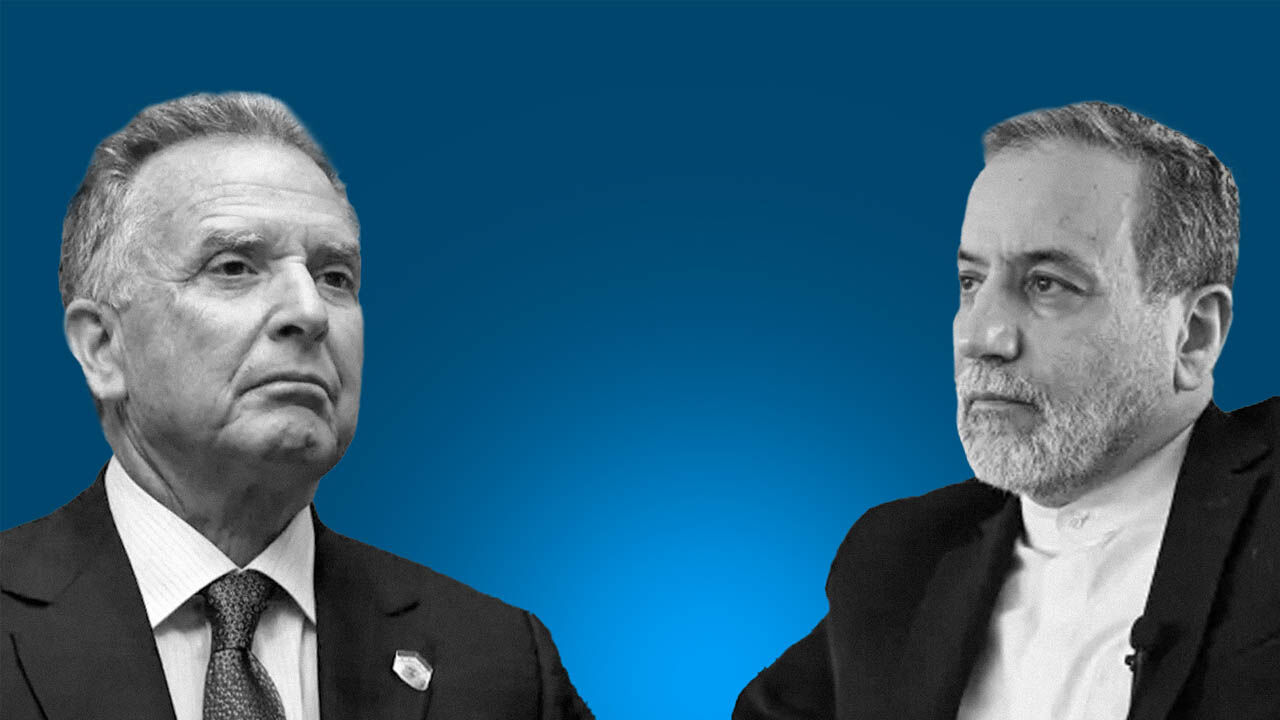Palestine Action prisoner hospitalised due to hunger strike
Palestine Action prisoner hospitalised due to hunger strike

An activist held on remand in a British prison on charges connected to the direct action group Palestine Action has been hospitalised after entering his second week of hunger strike.
Kamran Ahmed is among six prisoners who launched a rolling hunger strike earlier this month after UK Home Secretary Shabana Mahmood failed to respond to a letter outlining demands relating to their treatment.
These included immediate bail and an end to prison interference with their personal communications, as well as lifting the ban on Palestine Action.
In July, the UK government proscribed the direct action group under terrorism legislation, making it a criminal offence to be a member of or show support for the organisation.
The hunger strike coincides with a three-day judicial review at London's High Court of the group’s proscription, which began on Wednesday.
Ahmed was arrested in November 2024 and has since been held in custody at London's Pentonville prison pending trial. He is due to stand trial next year, facing charges of criminal damage, aggravated burglary and violent disorder.
The campaign group Prisoners for Palestine (PFP) reported that Ahmed was hospitalised on Tuesday after collapsing on Friday with low blood sugar levels, indicating hypoglycaemia.
Ahmed, who is asthmatic, had been suffering from dizziness, breathing difficulties, chest pains and low blood sugar, according to PFP.
The group added that Ahmed’s weight had dropped from 74kg to 68kg, and that his ketone levels - which indicate blood acidity - were “dangerously” high.
'He's my baby brother'
Shahmina Alam, Ahmed's sister, said he had passed out when he was alone in his cell late on Friday night. He came to on the cell floor and climbed back into bed, she said.
“They should have been checking his cell and doing more to mitigate the risk of him being unconscious in a cell by himself,” Alam told Middle East Eye.
She said an ambulance was called for Ahmed on Saturday, but the paramedics declined to take him due to his hunger strike, saying there was nothing they could do.
'When you hear a family member has gone to hospital, you immediately want to see them, be able to speak to them, be able to reassure them'
- Shahmina Alam, sister of Kamran Ahmed
Alam said her brother's solicitor then tried to arrange for another ambulance to get a second opinion, but the prison refused, saying there was no need.
In response to a request for comment, the Ministry of Justice told MEE: “It would be incorrect to report the prison received communication around a second ambulance. Any prisoner assessed as needing hospital treatment is immediately taken to hospital.”
MEE asked NHS England why paramedics had refused to transfer Ahmed to hospital, but did not receive a reply by the time of publication.
On Sunday evening, Alam received a call from Ahmed saying an ambulance had been called.
“That was the last we heard,” she said. “The prison has not given us any further information about where he is or how he is.”
After multiple calls and emails from Alam and her partner requesting more information about Ahmed’s condition, the prison eventually responded saying it would only comment when it felt it was right to do so.
“I just wanted to know if he’s OK, if he’s getting treatment,” said Alam.
The Ministry of Justice told MEE that it is "legally prevented from passing out prisoner healthcare information over the phone to unverified callers".
Alam said that, when she received the news, she had been in “autopilot mode” as she had been organising a protest outside the prison to highlight Ahmed's case.
“I was suppressing a lot. But then it all came crashing down. I woke up early, really anxious, frantic, crying, trying to figure out what I’m going to do,” she told MEE. “He is my baby brother. It's hard as a sibling not even being able to see him.”
“When you hear a family member has gone to hospital, you immediately want to see them, be able to speak to them, be able to reassure them.”
“These are all things I can’t do,” Alam said.
Rapid weight loss and declining health
PFP reported that the five other prisoners on hunger strike are experiencing rapid weight loss and declining health.
Qesser Zurah and Amu Gib, currently held at HMP Bronzefield, launched their strikes on 2 November. Heba Muraisi, who is held at HMP New Hall, joined on 3 November, and Jon Cink, also held at Bronzefield, refused food on 6 November.
They were joined on 9 November by Teuta Hoxha, who had previously launched a hunger strike at Bronzefield over her removal from a library job and restrictions to her personal correspondence.
Gib and Zurah “have lost considerable weight and are struggling physically”, PFP said, adding that medical staff at Bronzefield were initially reluctant to conduct medical examinations of the pair and were “hostile” towards them. It added that Gib is "much slower, feeling faint and dizzy", and can only stand for a few minutes at a time.
Meanwhile, Zurah has reportedly been experiencing "severe, sharp muscle pains" and has difficulty walking, breathing and sleeping.
PFP said that Muraisi "feels like she may collapse soon" and is "exhausted and feeling nauseous from drinking water".
Middle East Eye previously reported that Zurah, Gib and Muraisi’s repeated requests for electrolytes and medical attention had been refused by prison authorities.
PFP said this had finally been granted nine days into their strike. The Ministry of Justice's guidelines for clinical management of prisoners refusing food states that they should be given a "full initial medical assessment".
"This includes a brief history of past and present medical problems and a full clinical examination," the guidance reads.
More than 100 doctors signed a letter to NHS England's health and justice team raising their concern about the treatment of the prisoners and urging the body to intervene.
On 20 November, MP and former Labour Party leader Jeremy Corbyn wrote to Justice Minister David Lammy expressing "grave concern" about the health and wellbeing of Gib, one of his constituents, and demanded an "urgent meeting" to discuss her "troubling conditions".
When approached by MEE for comment, a spokesperson for HMP Bronzefield said: “Whilst we can’t comment on individuals, all prisoners are managed in line with the policies and procedures governing the entire UK prison estate. This includes specialist multi-agency processes, led by the government, to assess individual risks and security status.”
They added that the prison encourages prisoners to raise complaints “directly with the prison, as there are numerous channels available for addressing such concerns”.












